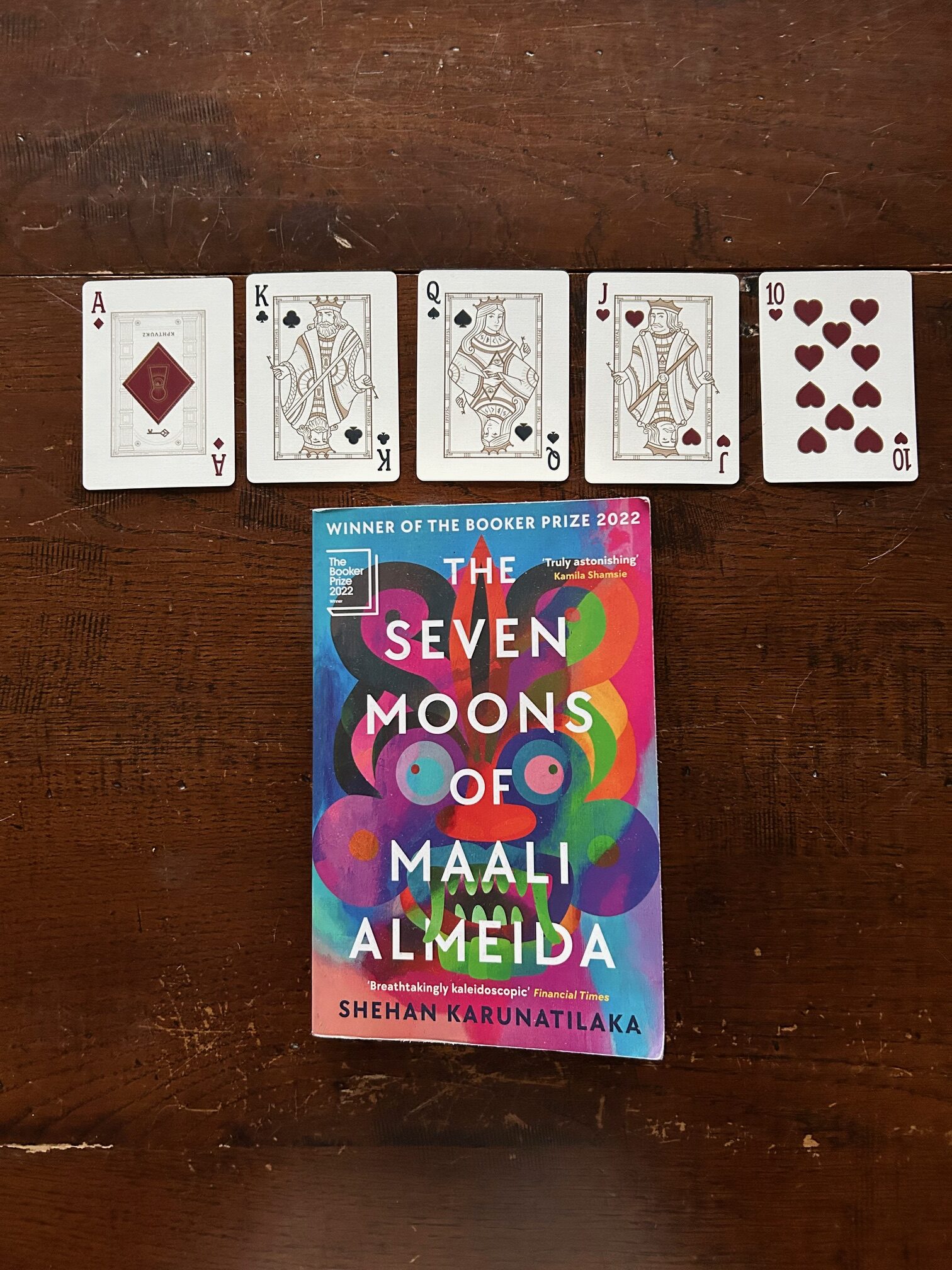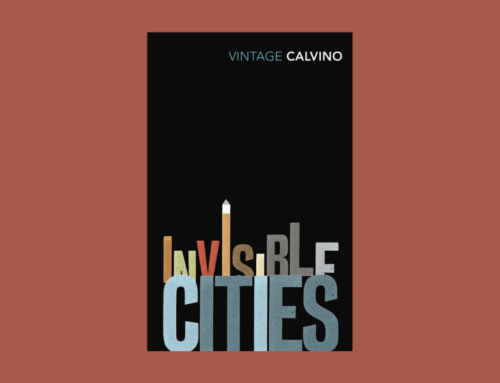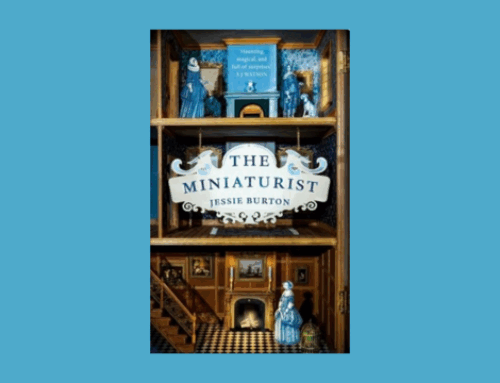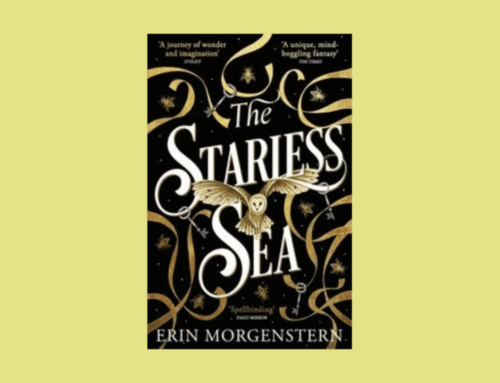1990, Colombo, Sri Lanka. A newly dead war photographer has seven moons to discover why and how he died, and what to do with himself next in the afterlife.
Into this intriguing scenario you step, and what follows is a remarkable journey through Maali’s life, his afterlife, and Sri Lanka’s civil war. He provides a list of political abbreviations to one of his journalist friends early on in the story, which I found helpful, as an outsider who was unfamiliar with the various factions and people involved. The story is chaotic and colorful and magical: the absolute disregard for dead human beings by live human beings, the many different ghosts and demons constantly trying to snatch Maali, his controversial life as a more or less openly gay man in a culture uneasy with that status – everything swirls along the pages, laced with a wry humor.
The civil war comes to life mostly through descriptions of Maali’s photographs. He photographs for all sides, and captures not only the ravaged bodies and torn-apart villages, but also high officials on both sides caught in flagranto delicto. These photographs and the hunt for their negatives form one major strand of the novel. I also found Maali’s gambling ways reflective of the war – he’s quite good at it, but in the end, he always loses big.

His housemates, Jaki and DD, the loves of Maali’s life, form another main strand. DD, a minister’s son, shares his bed with Maali, but Jaki, a news reader on TV and cousin to DD, forms at least as strong a bond. The three of them live their lives under huge social and political pressures to conform. As the moons pass Maali’s love for them becomes more important, the personal attempting to trump the political.
The story is written in second person singular. I found it worked a treat, as it keeps you close to Maali’s person when following him through life, but it also creates the distance needed to look at his choices through the lens of the afterlife. You feel as if Maali’s ghost is watching everything, just as he watched everything through his camera in life.
All in all The Seven Moons of Maali Almeida impressed me very much. Simultaneously magical realist literary fiction, a murder mystery, and a philosophical treatise on life and how to possibly live it, it hit a lot of the feels; I cried, I laughed, and I was very often aghast. It reminded me a lot of A Brief History of Seven Killings by Marlon James, also a Booker Prize winner, incidentally (and with “seven” in the title). A worthy award winner, in other words, and a great read to pick up if you’re in the mood for serious fiction that shines a light on a difficult time in history, but does so with bounteous imagination and wit.




